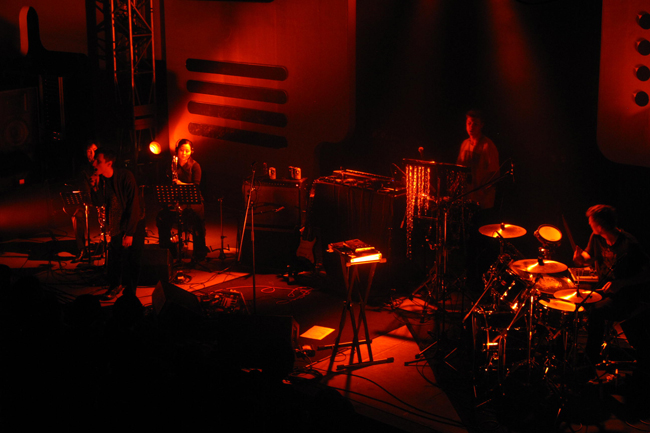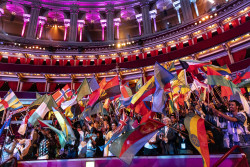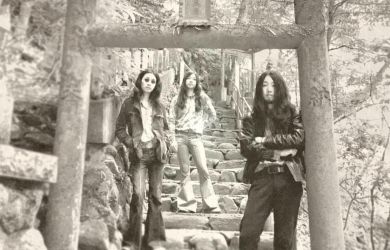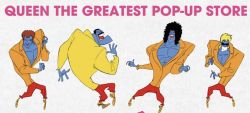
Originally published on metropolis.co.jp on June 2010

Photo by Hagino Tiger
There’s a bit of an anti-showbiz thing going on here tonight. Instead of the band taking the stage all guns blazing, the hunched and rather shy figure of Thomas Hein (keyboards/samples/drums) wanders onstage like he’s looking for his keys. He is accompanied by what look like a couple of locally recruited woodwind players.
Ignoring the small but enthusiastic audience at Shibuya’s Duo Music Exchange, they start noodling around, setting up the lugubrious sound textures of “Time Xone,” a kind of overture for the band’s latest album Hidden. The thought, “Have we started?” goes through many minds, but when the Barnett twins amble on—Jack taking the microphone, George the stool of the main drum kit—there can be no room for doubt.
They lunge into the punky, middle-eastern menace of “We Want War,” geeky frontman Jack throwing himself around like a string puppet, accompanied by samples, loops, pummeled drums, and the occasional parp from the woodwind section. The energy is maintained by “Numbers,” the song’s frantic repetitiveness, oddball lyrics, and minimalist guitar lines evoking TNP’s most obvious influence—The Fall—but that’s only a fraction of this band’s story.
Throughout the one-hour show, traditional rock-and-roll posturing and stage moves are thin on the ground. This is because much of a TNP gig consists of Jack Barnett and Hein programming and triggering small electronic gadgets, and Hein moving between keyboards and an additional set of drums. The two constants are George, putting in a hard shift on the main drum set, and the poker-faced woodwind section.
Hein joins George on drums for “Three Thousand.” The urgency and passion of the beefed-up percussion strikes an interesting contrast with Jack’s deadpan vocals, which find space between the asymmetric beats.

Photo by Hagino Tiger
“This is the underwater part of the set,” Jack tells the audience after a pause, as the tempo and mood of the show now shift. The next song, “Hologram,” is dominated by bassoon, clarinet and classical samples, while “Orion” pushes the band even deeper into “modern classical music” territory. Jack’s declared interest in mid-twentieth-century British composer Benjamin Britten now seems much more than an interview gambit. Only George continuing to thump the skins reassures what is essentially a rock audience that we are not in experimental avant-garde territory, even if we sometimes are.
The mix of songs that follow—some from latest album Hidden, some from 2008’s Beat Pyramid—do little to dispel the genre confusion, but a version of “Attack Music,” with Jack throwing out guitar shapes and posturing with a six-string that looks heavy around his scrawny neck, reminds us that we are pushing back into the rock domain.
Then we end with “Canticle,” essentially a meandering piece of bassoon that allows the band to leave the stage in the same low-key way they entered. It’s almost a pity when the symmetry this creates is destroyed by an ebullient encore of crowd-pleaser “Elvis” and the Radiohead-like “White Chords.”







